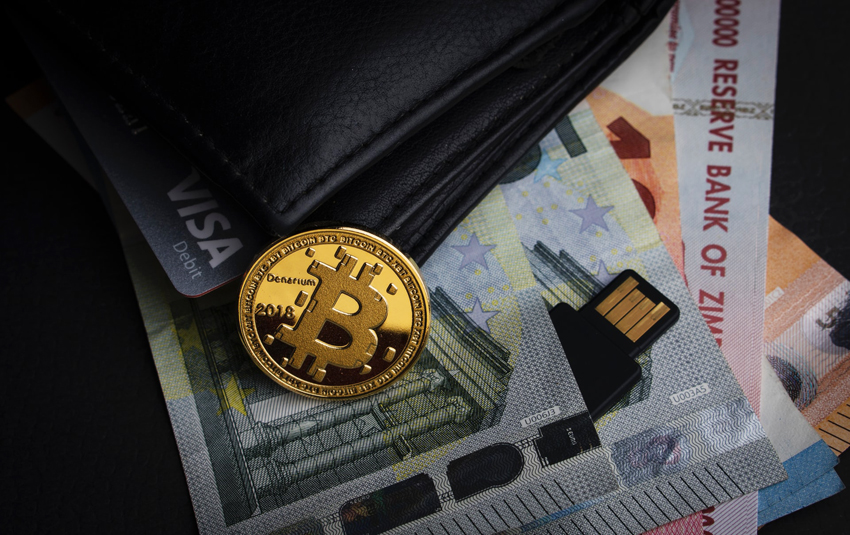If the public key is available to everyone on the Internet, then the private key should only be known to you
If everything is more or less clear with the storage of ordinary and electronic money, then what to do with cryptocurrency? Moreover, the wallet for her must have reliable protection against hacking, otherwise you risk losing your virtual savings. Consider how best to store cryptocurrency and whether hardware wallets are needed.
If we store cards, banknotes and coins in a regular wallet, then the cryptocurrency is stored in the blockchain. Moreover, each wallet contains two codes: private and public. The second is used to get other users to transfer currency to you. Private is a hexadecimal number that is generated cryptographically and cannot be hacked. This key is used to confirm transfers.
A similar encryption option is used in hardware keys for two-factor authentication. Data encoded with a public key can only be declassified using the private key.
When someone transfers cryptocurrency to you, they use your Bitcoin address and public key to encode the transfer. After that, you can decrypt it with your private key and get the money. If the private key does not match the public key, then decryption will fail and the transaction will not be approved.

Cryptocurrency wallets are primarily designed to store a private key. They are of several types:
1. Exchange wallets are services for storing money provided by cryptocurrency exchanges. These are the so-called non-custodial wallets, that is, the private key is not held by the user, but on the developers’ servers. On the one hand, there is always a risk of data leakage, on the other hand, many exchanges guarantee the return of lost funds.
2. Software wallets, in turn, there are several types: web and mobile wallets, which are tied to a device – a computer or smartphone.
Web wallets allow you to quickly buy and sell currencies, besides, they can be accessed from anywhere in the world. But at the same time, despite the high level of protection, they can still be hacked, so this is not the safest option for storing large amounts.
But mobile wallets are considered very reliable, because in this case the codes are not stored online, but on the user’s device. However, if the gadget is lost or broken, then access to the currency will be lost along with it, and it is no longer possible to restore it.
3. Hardware wallets are flash-like devices that generate private keys. They work autonomously, so they cannot be hacked. Such a wallet is more expensive, but it guarantees the safe storage of funds, in addition, you can create a backup copy for it in case of loss of physical media and restore access to finance.
4. Paper Wallets – Printed private keys for an online wallet, as well as QR codes for quick access, which the user keeps in a safe place. This is a reliable option, but extremely inconvenient for active cryptocurrency trading – you will have to record the information manually.
Aside from paper keys, a hardware wallet remains the safest option. It minimizes risks that the user cannot control: data leakage on the cryptocurrency exchange or new malware. Since the information is stored on an external medium, it is extremely difficult for hackers to get to it, and the main task of the owner is not to lose the hardware wallet and not to forget the data to access it. Perhaps this is the most common problem among the owners of such wallets.
